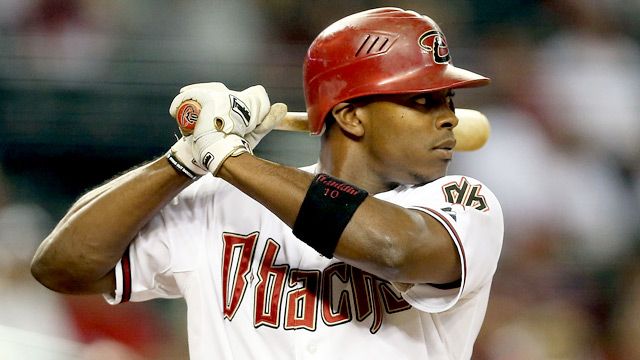Highly recommend this. RT @jonahkeri: Thoughts on the Justin Upton trade. http://goo.gl/jFqoc
7:01 PM - 24 Jan 13 · Details
Why No One Is Declaring Arizona the Winner of the Justin Upton Trade
By Jonah Keri on
The Atlanta Braves acquired Justin Upton from the Arizona Diamondbacks Thursday, sending away five players and also the timid approach to roster building that had limited the Braves to not-quite-good-enough status in recent years.
Upton and veteran third baseman Chris Johnson will head to Atlanta in the deal. In return, Arizona acquired Martin Prado, a productive infielder/outfielder who'll play third for the D-backs, along with 22-year-old right-hander Randall Delgado and three minor leaguers: Nick Ahmed, Zeke Spruill, and Brandon Drury.
A year ago around this time, we lamented the Braves' conservative spending and trading tendencies, and how it seemed the front office and the Braves' corporate owner, Liberty Media, were content to build teams that were good, but not quite World Series contenders.
In the Japanese prefecture of Okinawa, locals practice a unique kind of diet. It's called hara hachi bu, which roughly means, "eat until you're 80 percent full." Sounds both logical and awful, right? Okinawans eat less than people in Western societies, and also live longer. And forget 100 percent — we slam two helpings of turkey smothered in gravy, three plates of stuffing and sweet potatoes, and four kinds of pie every Thanksgiving, then feel like garbage afterwards. But dammit, it tastes good, and it's our right to stuff ourselves silly and destroy our health and waist lines. Hara hachi bu might make sense on paper, but it hasn't caught on in most other first-world nations.The Braves are the Okinawans of Major League Baseball. Sure, plenty of teams run much lower payrolls and keep draft spending in check. But those teams do so because they're poor by MLB standards. The Braves are not. They're a mid-market team not far removed from one of the greatest runs of success any team has seen in half a century. But where previous owner Time Warner bankrolled one of the top payrolls in the game, Liberty Media has clamped down on spending, with the Braves ranking a modest 15th at $87 million last season. They could probably spend more money and still turn a profit. They choose not to. Meanwhile, the new collective bargaining agreement's restrictions on draft spending should have zero effect on the Braves. They were one of very few teams that stuck to slot recommendations every year. In fact, Braves president John Schuerholz was a driving force behind the new spending caps and the penalties that result from going over those caps. The Braves continue to pump out great players, using superior scouting in the draft and on the international market to bring in new generations of exciting talent. But in a division that features a new, big-spending superpower in the Phillies, that hasn't been enough, with just one playoff berth and no division titles for Atlanta in the past six years.
The Braves didn't make any blockbuster moves for the rest of last winter, either. But big improvements from Jason Heyward and others, along with modest upgrades such as Paul Maholm, did push the team to a 94-win season and its second wild-card berth in three seasons, before a loss in the wild-card elimination game against the Cardinals. Still, the Braves have now gone seven years without winning the NL East after claiming 14 of 15 division titles. With the Nationals shooting to the top of the division led by one of baseball's most dynamic collections of young talent, and Braves fans still waiting for the signature, go-for-it move that might signal a real challenge to Washington's ascendance, an eighth straight season of settling seemed to be imminent.
Trading five players to get Justin Upton marks the end of settling, a farewell to hara hachi bu. Per ESPN Stats & Info, only six National League outfielders have topped Upton's .842 OPS over the past five seasons. In the past four seasons, the only NL outfielders to top Upton's 16.7 Wins Above Replacement are Ryan Braun, Matt Holliday, Andrew McCutchen, Michael Bourn, and Matt Kemp. Upton is coming off a down year, one in which he hit a modest .280/.355/.430 while plagued by a thumb injury that wrecked the first month and a half of his season. But just a year earlier, he hit .289/.369/.529, smashing 75 extra-base hits, stealing 21 bases, and producing more than six wins for his team. A 25-year-old outfielder who's already posted those kinds of numbers and is signed for three more years at an attractive price of $38 million should qualify as one of the most valuable trade commodities in the game. Given his pedigree, his age, the prospects for future healthy seasons, and the numbers he's already put up, there's a good chance we haven't yet seen the best of Justin Upton.

